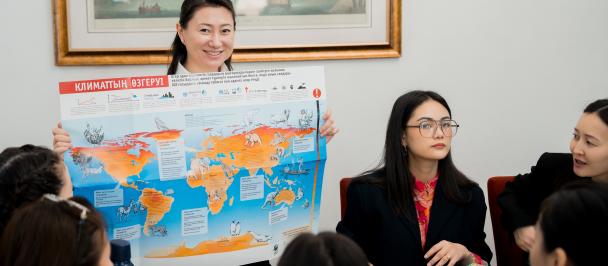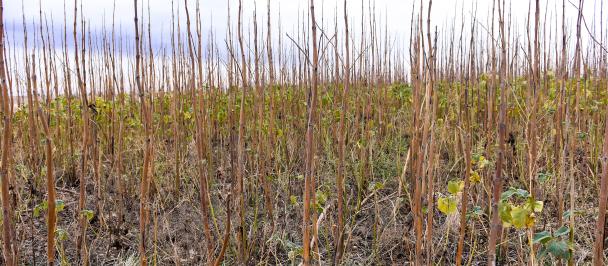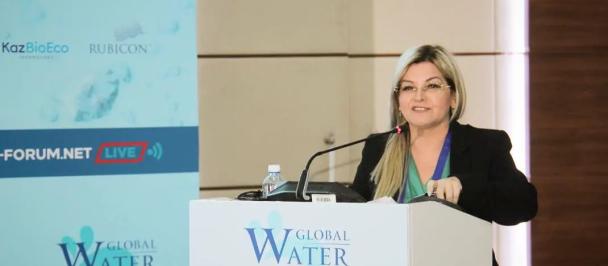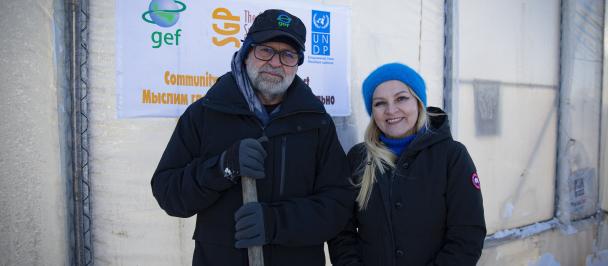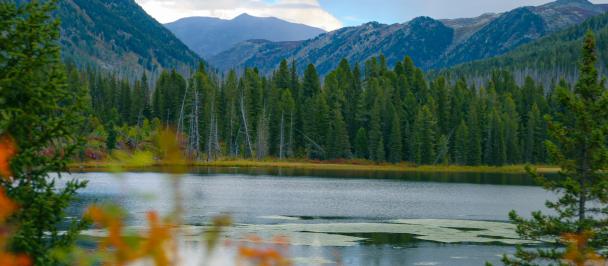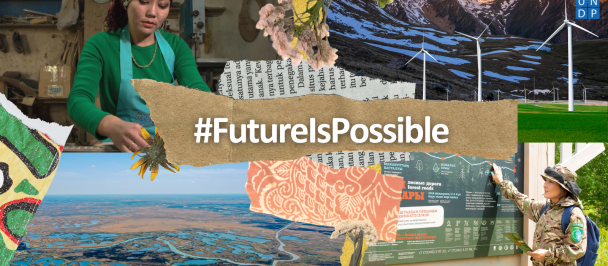Climate is changing -- it’s happening right now before our very eyes. Climate change is not something that will take place in the future - we see how climate change caused by human activities is already affecting every region on Earth in multiple ways.
According to forecasts, in the coming decades, climate change will accelerate. Climate-related natural disasters, such as mudflows, floods, and droughts will increase in frequency and size, and this trend will continue into the next decade. At 2°C of global warming, heat extremes would reach critical tolerance thresholds for agriculture and health more often.
Global efforts in combating climate change will not succeed without the broad participation of youth. We see successful cases of young people around the world fighting against climate change to build their own future, and their work inspires us all. The new generation has an ever-increasing awareness of environmental matters, energy, and knowledge which contributes to reducing carbon dioxide emissions and to a future resistance to climate change.
We spoke with Veronika Dashkova, a youth from Kazakhstan, whose style of living is guided by “conscious consumption.” Like millions of young eco-activists around the world, she is contributing to the development of environmental culture and contributing to the fight against climate change.
Why did decide focus on environmental issues?
I have been dealing with environmental issues professionally for a few years. I received a bachelor's degree Ecology from York University in the UK, then a master's degree from Nazarbayev University and continued my doctoral studies there. We carry out hydrobiological research and study phytoplankton in the Aral Sea, in Lake Balkhash and in the Kurgalzhin reservation park.
But being an eco-activist is different. Many of my colleagues despite specializing in environmental issues, do not stick to eco-friendly behaviour or to the tenets of conscious consumption. I believe that our daily habits and actions can change the global processes related to climate change. As an environmentalist I want to have a dialogue with society. Fighting against climate change should start with ourselves. I tell people that each of us can contribute to improving environmental conditions. If we imagine that the ocean consists of water drops, then the efforts of each of us are a drop in the ocean, but it is from such drops that the ocean consists of.
I came to see that my research activities were separate from society. We conduct research and publish reports, but we do not raise awareness about the basic aspects of eco-friendly behaviour among the public. Therefore, I decided to get trained as an eco-coach. This is a new trend in environmental education. Since 2019 I’ve been conducting lectures and trainings on the concept of conscious consumption in various organizations, specifically within the framework of UNDP projects in Kazakhstan.
What does conscious consumption mean for you? What actions are you taking to live a more environmentally friendly lifestyle?
Over several years, I adopted an environmentally friendly lifestyle, namely, I adhere to conscious consumption in everything -- starting from food and household goods and ending with information consumption.
I consciously approach the issue of clothes purchases and try to buy clothes from local manufacturers made of high-quality biodegradable materials, such as cotton or linen. Regarding sportswear, where synthetics are unavoidable, I prefer clothing made from recyclable materials. Before buying new clothes, I always ask myself if I need them or how long can I plan to wear them. This already means less wastage.
When choosing food products, I check official ecomarks and labels. I almost never use plastic bags and bottles. I use reusable bags for shopping. I try to replace all single-use options with reusable alternatives.
Moreover, I collect waste - glass, plastic, paper - separately and take it to recycling points. The same with organic waste and spoiled food. Nazarbayev University has a vegetable garden for professors with a container that turns organic waste into fertilizers.
What role do you think young people play in combating climate change?
There are many successful examples of young people changing the world by starting with themselves. I think the more consciousness there is in the behavior of each of us, the sooner we can stop the destructive climate change for the sustainable future of our planet.

 Locations
Locations


